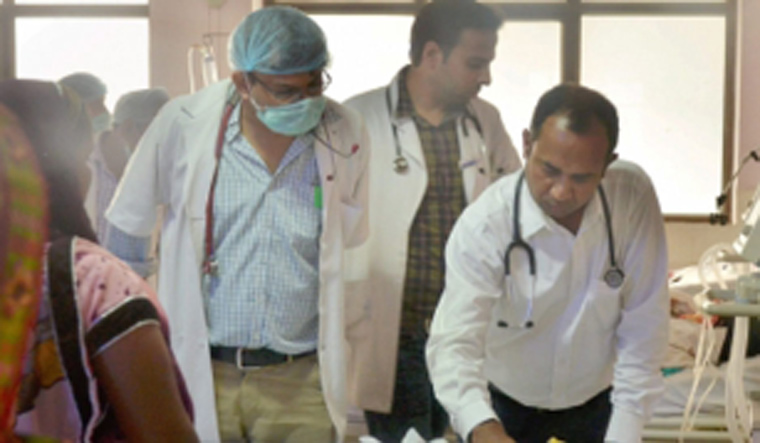Will a blind doctor be able to treat a patient properly? How will a person with a learning disability prescribe the right medicines?
These are some of the questions bothering officials in the Union ministry of health and family welfare.
The cause of their dilemma is a new order of the ministry, which states differently-abled students will now be able to get admission in post-graduate medical courses under the reserved category.
The decision has been taken to comply with the Rights of Persons with Disabilities Act, 2016. According to the ministry, the percentage of seats to be filled up by such persons has also been increased from 3 per cent to 5 per cent.
Until now, students with 40-70 per cent lower limb disability were allowed to study medicine. Now, however, a ministry official, who did not want to be named, said that medical graduates with 21 kinds of disabilities—defined under the Rights of Persons with Disabilities Act, 2016—will get the benefit of reservation in PG courses. In the coming months, this would be extended to MBBS admissions as well, he said.
The categories of disabilities include blindness, low vision, leprosy-cured persons, hearing impairment (deaf and hard of hearing), locomotor disability, dwarfism, intellectual disability, mental illness, autism spectrum disorder, cerebral palsy and muscular dystrophy.
Union Health Minister J.P. Nadda termed the decision a 'historic' one. “After 20 years, the government has taken a historic decision for welfare of divyang sisters and brothers. Now, all 21 benchmark disabilities as per the Rights of Persons with Disabilities Act, 2016, can register for admission to medical courses,” he said.
According to the ministry, the software used by the director general of health services for central counselling has been amended to allow registration of all such candidates. The registration or allotment of seats would be followed by a medical examination to ascertain the level of disability before finally granting admission to candidates selected under the reserved quota.
The ministry official, however, said the Medical Council of India had failed to define the extent of disability in each category, which could lead to complications during the admission process. He said that the ministry was already faced with requests from several students with more than 70 per cent of disability for PG courses, and the extent of their condition could prove to be an impairment in treating patients.
“The MCI should have defined the range of disability in each category. Those who are blind or deaf, or with severe learning disability, might not be able to treat patients properly. In the case of PG students, we might not have many such candidates, but the real problem will start once the admission process for MBBS starts in the next few months,” he said.


